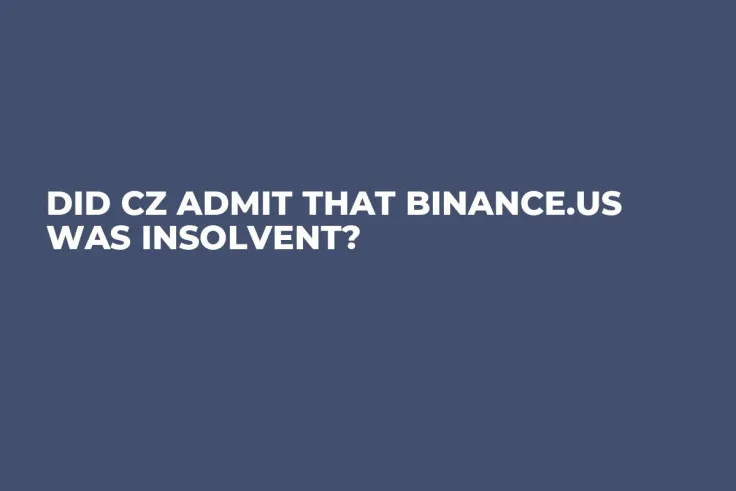
Disclaimer: The opinions expressed by our writers are their own and do not represent the views of U.Today. The financial and market information provided on U.Today is intended for informational purposes only. U.Today is not liable for any financial losses incurred while trading cryptocurrencies. Conduct your own research by contacting financial experts before making any investment decisions. We believe that all content is accurate as of the date of publication, but certain offers mentioned may no longer be available.
The recent disagreement between the U.S. Securities and Exchange Commission (SEC) and Binance has caused a stir in the crypto world, raising questions about Binance.US's solvency and the safety of its users' funds.
Following the SEC's request for emergency relief, Changpeng Zhao (CZ), the founder of Binance, reassured users that their funds are safe on all Binance-affiliated platforms. While CZ has maintained the SEC's request was unwarranted, the resolution of this disagreement on mutually acceptable terms has triggered further debate.
…dude…
In taking the SEC settlement on this term, you are admitting that Binance US funds were indeed comingled on other platforms and in non-Binance funds.
User assets were not kept 1:1 on the exchange where users expected… https://t.co/Lyo8CIEbJg?from=article-links— Adam Cochran (adamscochran.eth) (@adamscochran) June 17, 2023
Adam Cochran, a prominent figure in the crypto community, argued that by agreeing to the SEC's terms, CZ is indirectly admitting that Binance US funds were indeed commingled on other platforms and in non-Binance funds. This implies that user assets were not maintained 1:1 on the Binance US exchange as expected by users. If true, this raises questions about the company's management of user funds and its implications for user trust.
However, another opinion counters Cochran's assertion. Some argue that should the disagreement have not been resolved, there was a real risk of the judge entering a far worse order for Binance. This perspective suggests that Binance's decision to settle was primarily aimed at avoiding potentially more damaging outcomes rather than admitting any wrongdoing.
Responding to this viewpoint, Cochran noted that the settlement does not change the fact that Binance had assets outside of Binance US control. Thus, irrespective of potential court outcomes, he argues that this situation validates concerns about the commingling of assets.
While Binance has repeatedly assured users of the security of their funds, the controversy has highlighted the importance of clear asset management and accountability, particularly in an industry where user trust is paramount.

 Vladislav Sopov
Vladislav Sopov Dan Burgin
Dan Burgin